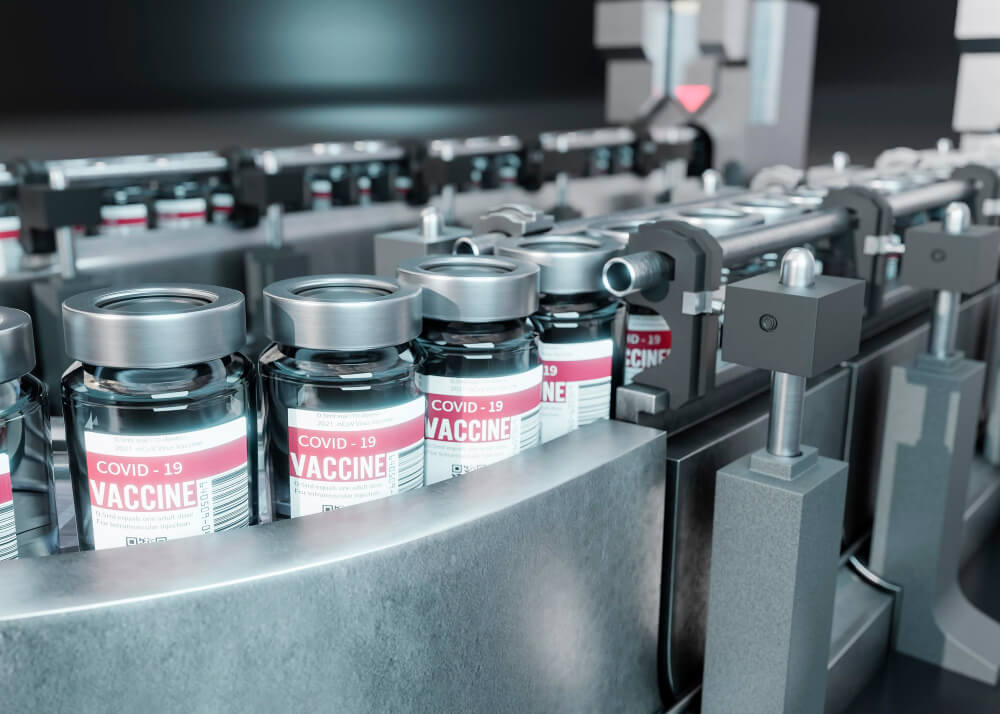In addition to its profound impact on drug discovery and development, quantum computing holds immense potential to revolutionize various aspects of the healthcare industry. In healthcare, the areas where quantum computing can make a significant difference are the pharmaceutical industry as well as medical transportation. By harnessing the power of quantum computing alongside advancements in logistics there can be significant enhancement in the efficiency, safety, and accuracy of medical transportation systems, ultimately improving patient outcomes and saving lives.
Quantum Computing and The Pharmaceutical Industry
Quantum computing holds immense promise in revolutionizing pharmaceutical research and development (R&D), making the process of drug creation faster and more accurate. Traditional drug discovery involves extensive trial-and-error processes, sifting through large libraries of chemical compounds to identify potential candidates. Quantum computing can significantly speed up this process by efficiently simulating molecular interactions and predicting the behavior of molecules. By rapidly screening vast chemical libraries and simulating drug-target interactions, researchers can narrow down the possibilities and select the most promising compounds for further development. This accelerated drug discovery process, enabled by quantum computing, has the potential to shorten the time required to bring new drugs to market, providing hope to patients in need. There is promise in using quantum computing to predict and develop side effects and dosage of drugs as well. The accuracy and efficiency offered by quantum computing in pharmaceutical R&D have the potential to revolutionize the way drugs are created, leading to breakthroughs in treatment options and improved patient outcomes.
This new and improved way of developing and creating drugs will call for the rest of the healthcare industry to step up their game and turn to quantum computing and the advancements it can offer. Let’s take a look at medical transportation and how quantum mechanics can improve transports themselves as well as logistics and the medical supply chain.
Quantum Computing and Transportation Logistics
Medical transportation plays a critical role in ensuring timely and efficient delivery of medical supplies, organs for transplant, and emergency services. Quantum computing’s ability to process vast amounts of data and perform complex calculations at the same time makes it an ideal tool for optimizing transport logistics. By considering multiple variables simultaneously, quantum algorithms can optimize route planning, resource allocation, and scheduling to minimize transportation time, reduce costs, and improve the overall efficiency of medical supply chains.
For example, quantum computing can help identify the most optimal routes for organ transport, considering factors such as traffic conditions, weather, and urgency. By optimizing these routes, vital, time-sensitive organ transports can reach patients in need more swiftly, increasing the chances of successful transplantation. Additionally, quantum algorithms can optimize the allocation of resources, such as ambulances and medical personnel, to ensure efficient utilization and prompt response to emergencies.
Real-time Monitoring and Response
Quantum computing can also facilitate real-time monitoring and response systems for medical transportation. By integrating quantum sensors with transport vehicles and infrastructure, critical data such as temperature, humidity, and location can be monitored in real-time. Quantum algorithms can analyze this data, detect anomalies, and trigger immediate alerts or interventions in case of emergencies or deviations from the desired conditions. This real-time monitoring capability enhances patient safety and offers more options for how to ensure products remain in their optimal states and environments during transportation.
For example, quantum sensors integrated into medical transport vehicles can continuously monitor the temperature and humidity levels of sensitive medications or organs being transported. If any deviations from the optimal range are detected, quantum algorithms can alert the relevant personnel, allowing them to take immediate corrective actions to prevent damage to the product. This real-time monitoring and response system can save valuable medical resources and enhance the quality and safety of transported goods.
Collaborative Communication
Quantum computing’s ability to process complex data sets and perform rapid calculations can facilitate collaborative decision-making in medical transportation. Quantum computing can facilitate real-time communication and coordination between hospitals, emergency services, and transport providers, enabling efficient decision-making and enhancing the overall effectiveness of medical transportation systems. Already, hospitals, medical centers, and transportation services have to work in clear and constant communication to complete transports. By integrating data from various sources such as hospitals, emergency services, and traffic management systems, quantum algorithms can help facilitate seamless coordination among different stakeholders involved in medical transportation. This collaborative approach minimizes delays, reduces response times, and improves the overall efficiency of medical transport systems.
Overcoming Challenges and The Future
While the potential of quantum computing in optimizing medical transportation is promising, several challenges must be addressed. Developing robust and error-resistant quantum computing hardware and improving algorithmic efficiency are ongoing research areas. Additionally, the integration of quantum computing into existing infrastructure and the training of personnel to effectively leverage this technology are vital considerations. There is still quite a lot to be done in this research area, but we here at Medi-Ops are innovative and forward-thinking, so we like to dream and look ahead at future possibilities of continuously improving medical transportation.
As quantum computing continues to evolve, its integration with medical transportation systems holds tremendous potential to revolutionize healthcare logistics. From optimizing route planning and resource allocation to enhancing predictive maintenance and real-time monitoring, quantum computing can significantly improve the efficiency, accuracy, and safety of medical transportation. By leveraging the power of this disruptive technology, we can ensure that patients receive critical medical supplies, emergency services, and organ transplants in a timely and efficient manner, ultimately saving lives and improving healthcare outcomes. The synergy between quantum computing and medical transportation represents a groundbreaking opportunity to transform the way healthcare is delivered, and it is an exciting frontier to explore and keep our eyes on as this technology continues to take shape.




